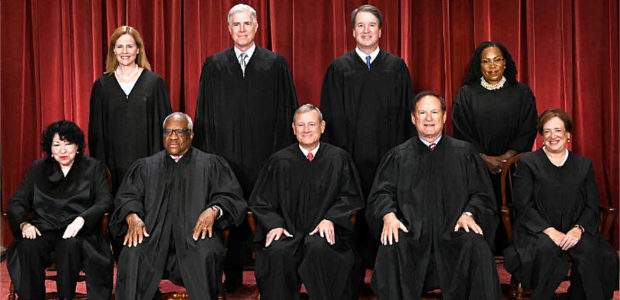Happy Tuesday, and welcome to another edition of Rent Free. This week's newsletter includes stories on:
How Texas cities are attempting to undermine state-level zoning reforms. New York landlords and Zohran Mamdani make nice ahead of his likely election win. New York's Board of Elections weighs whether to remove housing streamlining measures from the city's November ballot.Can Texas Cities Mandate Pools and Saunas To Stop New Apartments?
In August of this year, Texas Republican Gov. Greg Abbot signed Senate Bill (S.B. 840) into law, which requires larger cities in larger counties to allow new mid-rise apartment buildings in commercially zoned areas.
The bill got a lot of praise from YIMBY housing advocates for being a good, clean reform that legalizes new housing construction in the most in-demand places without a lot of poison pills that might reduce its effectiveness.
Since the state didn't add those poison pills, some local governments rushed to include their own before S.B. 840 went into effect last week.
The Texas Tribune has a detailed report on the myriad new mandates that municipalities are passing that will reduce the number of S.B. 840 projects that get built.
Arlington, Texas, for instance, will now require builders to choose five amenities from new city menus to include in their S.B. 840 projects, including things like dog parks, sports courts, rooftop lounges, and fitness centers with a sauna or steamroom. Pools will be required in projects of 80 or more units.
The text of the city's zoning amendments says that the changes are intended to improve the "quality of life" for multi-family housing residents.
It's unavoidable, however, that requiring expensive amenities in new buildings will raise the rents that new buildings will have to fetch in order to be financially viable.
Fewer projects will get built as a result, and a would-be multifamily resident who would have preferred lower rents at a pool-less building will be out of luck.
While S.B. 840 requires that cities allow apartments to be at least 45 feet tall, Plano, Texas, will require that S.B. 840 projects be at least 45 feet tall—even if only a smaller apartment project makes financial sense on a given site.
Since S.B. 840's apartment legalization does not apply to areas zoned to allow heavy industrial use, Frisco, Texas, has zoned everywhere that S.B. 840 would have applied for heavy industrial uses—while still retaining a veto on any new proposed industrial projects.
Anyone who has followed efforts at state-level zoning preemption in California will be familiar with these games.
The state tells localities that they must approve certain types of housing. Localities look for ways to allow that housing on paper while making it impossible to build in practice. Subsequent "clean-up" legislation is required to close loopholes and give builders legal remedies for when their projects are denied.
In the Golden State, localities often undermine state-level upzoning by requiring new buildings to include a set percentage of income-restricted, often money-losing, affordable housing units. Proponents of these mandates will argue that new housing shouldn't just be luxury development for the rich.
It's a bit ironic then that since Texas already forbids such mandatory "inclusionary zoning" requirements, some municipalities are straightforwardly requiring that new buildings be luxurious, amenity-rich developments.
"I can't help but laugh when I'm reading over a lot of these requirements," says Nicole Nosek, of Texans for Reasonable Solutions, one of the main groups supporting S.B. 840.
She tells Reason it's both comical and sad that cities would implement "such expensive, ritzy measures in the midst of a housing affordability crisis for working Texans. It's out of touch and it's just wrong."
It might also be unconstitutional.
"In order for local regulation to pass constitutional muster, it must at a minimum be rationally related to a legitimate government interest," says Ari Bargil, an attorney with the Institute for Justice, a public interest law firm. "There is no legitimate government interest that is furthered by silly and hyper-expensive requirements like swimming pools and yoga rooms."
"The entire animating force is to drive up the cost of housing, and that's about as far from the public interest as you can get," he adds.
Bargil says the Institute for Justice, which frequently challenges zoning regulations on behalf of property owners, is taking a "hard look" at Texas cities' new rules.
Nosek says Texas for Reasonable Solutions is considering litigation to enforce S.B. 840 as well, saying many of the new city requirements violate the text of the law and other pre-existing provisions of Texas state law.
She notes that while some cities are trying to thwart the intent of the new state-level reforms, Texas' major cities are generally complying with the law, and developers are already using the law to get projects approved.
Dallas issued a fact sheet on S.B. 840 that maps out where the law allows new housing and says that city staff will develop new tools to help developers use the law. Austin has likewise said that it is "ready to accept new applications consistent with the changes in SB 840."
Still, with S.B. 840 applying to only about 20 municipalities, even a handful of cities subverting the law could significantly diminish its impact on new home construction.
Landlords Stop Worrying and Learn To Love Zohran Mamdani (Sort of)
The Wall Street Journal reported Tuesday that New York City's rental property owners are resigning themselves to Zohran Mamdani's likely win in the city's mayoral election and are attempting to work with the self-proclaimed democratic socialist.
Trade groups and consulting firms representing landlords have reportedly been meeting with Mamdani's team to discuss property tax changes and other policy tweaks that might mitigate the impacts of his signature proposal to freeze rents at the city's roughly 1 million rent-stabilized housing units.
Property owners already complain that years of legal rent increases set below the rate of inflation and rising operating costs have effectively "defunded" rent-stabilized housing, resulting in rising rates of buildings in financial distress and falling maintenance spending.
The rent freeze that Mamdani has proposed wouldn't be unprecedented. But it will exacerbate these problems.
Given how heavily Mamdani campaigned on the promise of a rent freeze, and how he'll lack the money for most of the rest of his agenda once in office, it seems unlikely he'd abandon the policy. (Actually implementing it might run into legal challenges.)
The Journal reports some tepid optimism from real estate interests that Mamdani might agree to offsetting compromises to make the effects of a rent freeze less bad.
Still, a rent freeze is a rent freeze. There's only so much that can be done to mitigate its impacts.
Relatedly, I am considering ways to touch a hot stove without getting burnt pic.twitter.com/j6g9KIRGUA
— Christian Britschgi (@christianbrits) September 9, 2025
No Democracy In My Backyard?
The New York City Council has provoked widespread outrage over its attempt to remove three ballot questions from the November ballot that would amend the city's charter to limit the council's discretion over new housing development.
The three ballot questions were written by the Charter Review Commission, appointed by Democratic Mayor Eric Adams. Two of the amendments, if approved, would have more development applications considered by the city's planning commission, as opposed to the city council. One proposed amendment would also recreate an appeals board that could overrule the city council's rejection of affordable housing projects.
To stop that, the city council is asking the New York Board of Elections to yank the charter amendment questions from the November ballot, arguing that the language of the questions is too ambiguous and misleading, The New York Times reported last week.
That maneuver has produced widespread fury from interest groups and commentators.
"If this City Council wants to go down in history as standing in the way of giving voters the chance to eliminate New York City's barriers to housing, that is their choice and legacy to bear," an Adams spokesperson told the Times.
"Denying voters the right to weigh in on the affordability of this city would be wrong and cannot be allowed to happen," said Kenny Burgos, CEO of the New York Apartment Association, a trade association, in an emailed statement.
At City Journal, Eric Kober calls the idea that the Board of Elections has the power to reject the amendments over language quality concerns "preposterous" and the city council's request that they do so "outrageous."
The Atlantic published a piece on Tuesday titled "New York NIMBYs Turn Against Democracy."
Writing at Vital City, NYU Law School Professor Roderick Hills says a Board of Elections' decision removing the proposed amendments from the ballot "could substantially set back housing production and local democracy in New York."
The Board of Elections will decide whether or not to allow the amendments on the city ballot at their meeting this coming Thursday.
Quick Links
A new study funded by trade groups representing the rental property industry finds that tenant protection laws, like just cause eviction laws and right-to-council, lead landlords to raise rents to offset the risks these policies create. The latest broadside against abundance: new housing doesn't actually create abundance because it also lowers the price of housing.Grok is this true https://t.co/OUUYNOAoRb pic.twitter.com/3N7FSfeiw0
— Alec Stapp (@AlecStapp) September 8, 2025
Speaking of New York NIMBYs, Brooklyn residents oppose a building that will cast shade on a local park. Late last month, the town of Toms River, New Jersey, quietly dropped its plans to use eminent domain to seize a church to prevent the construction of a homeless shelter. The Ohio Supreme Court is weighing whether to strike down a town's restrictions on the number of unrelated people living together.The post Steamed NIMBYs Mandated Saunas To Stop New Housing appeared first on Reason.com.













 Bengali (Bangladesh) ·
Bengali (Bangladesh) ·  English (United States) ·
English (United States) ·